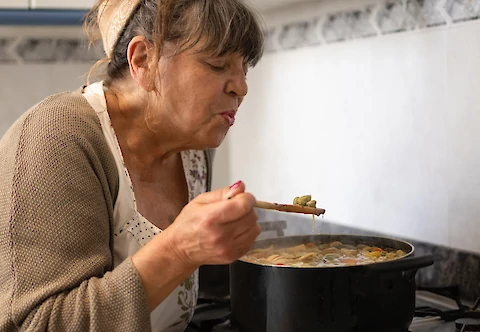
Understanding the nutritional needs of seniors is crucial at any time of year, but it becomes even more critical when winter sets in. With temperatures dropping and daylight hours diminishing, senior individuals face distinct challenges that can impact their health and well-being. Physical activity often decreases due to weather conditions, the cold and flu season pushes the immune system to its limits, and shorter days can impact the body's Vitamin D levels. These factors can significantly shape a senior's dietary needs.
Understanding the Changing Nutritional Needs of Seniors in Winter
Winter presents an array of challenges for seniors, most prominently the marked decrease in physical activity. Cold weather often restricts outdoor mobility and exercise, leading to reduced energy expenditure which can affect nutritional requirements. Moreover, winter marks the peak of cold and flu season, which can be particularly taxing on a senior's immune system. Thus, their diet must support and strengthen their immunity. Additionally, sunlight scarcity can lead to reduced vitamin D synthesis, a vital nutrient for bone health, making it essential to fulfill this requirement through dietary sources.
Practical Advice for Family Caretakers
As caretakers, adapting meal plans to these seasonal nutritional shifts can be straightforward with some planning. Prepare warm, wholesome meals with a mix of nutrients best suited for winter. Consider options like hearty soups enriched with legumes and veggies or protein-packed casseroles with lean meats. Besides providing necessary nutrition, these heart-warming meals can also offer a sense of comfort and coziness on cold winter days. For snacks, nutrient-dense foods such as nuts and seeds or fiber-rich fruits can be a great choice, providing both nourishment and energy.
Specific Nutritional Needs to Focus on in Winter
To mitigate the shortfall of vitamin D due to reduced sunlight, incorporate vitamin D-rich foods like salmon, egg yolks, and fortified foods into your loved one's diet. Proteins and healthy fats should be prioritized as they provide essential amino acids and sustain energy levels. Foods like lean meat, dairy products, avocados, and olive oil are excellent sources. Keeping seniors hydrated, despite the lessened inclination to drink water in winter, is paramount, as is providing ample dietary fiber for optimal digestion. Dishes with whole grains, lentils, fruits, and vegetables can serve this need well. Immune-boosting foods such as citrus fruits, bell peppers, and broccoli, rich in vitamin C and antioxidants, can fortify seniors against cold and flu.
How Senior Helpers Fargo Can Help
Supporting senior loved ones through the nutritional challenges of winter can sometimes be overwhelming. At Senior Helpers Fargo, we take pride in offering comprehensive care services tailored to the unique needs of seniors across Fargo, West Fargo, Grand Forks, Jamestown, and Wahpeton. Our experienced caregivers understand the nutritional complexities of the winter season and are equipped to provide meals that not only satisfy taste preferences but also fulfill dietary needs. Not only can we help with basic meal prep we can also offer companionship services that may encourage seniors to eat healthy, hearty meals that will help them stay healthy this winter. Contact us today to learn more about our home care options.